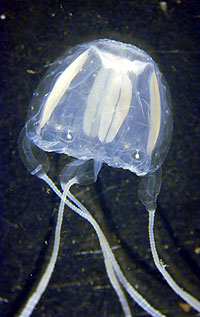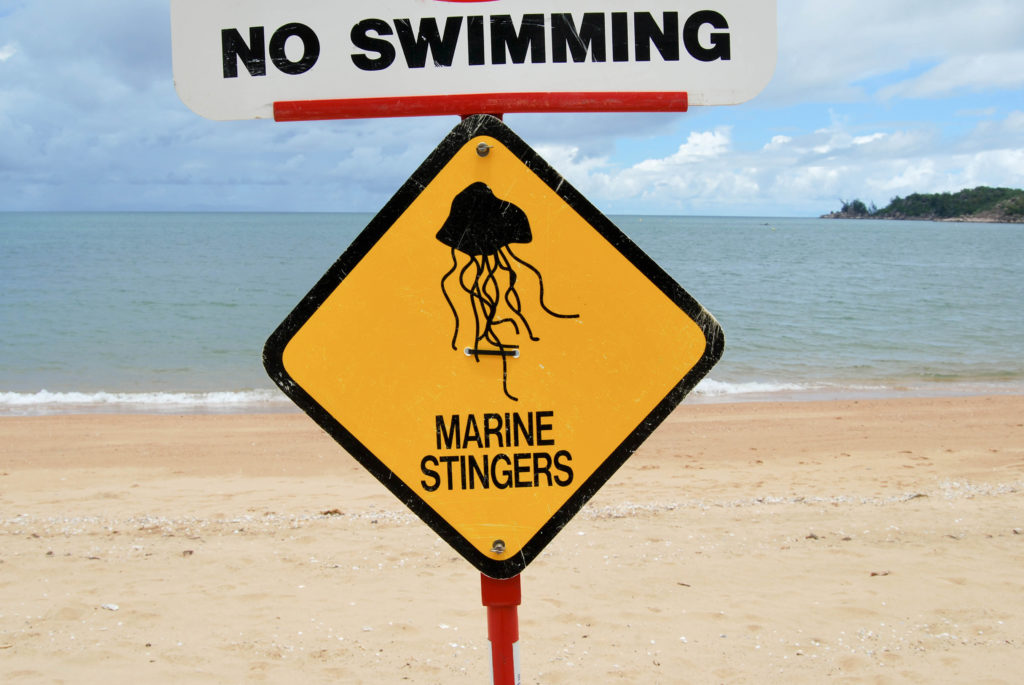Irukandji are a venomous species of jellyfish which live in Australian waters. The species also occurs in South East Asia, the Caribbean, Hawaii and South Africa¹. In Australia, the peak season for Irukandji jellyfish is during November to May.

Already this summer, 20 people have been hospitalised with suspected Irukandji stings, which is almost double the 10-year average.
Climate change may be expanding the distribution of deadly jellyfish along Queensland’s coast. The Irukandji jellyfish is spreading further south and its season is lengthening and could eventually be found as far south as the Gold Coast.
The Irukandji season has been lengthening since the 1960s in North Queensland (Carrette and Seymour 2013). As ocean waters warm, many tropical marine species have been observed moving into sub-tropical waters, with Irukandji being observed as far south as Hervey Bay and Fraser Island as recently as January 2019 (The Guardian 2018). Laboratory experiments have shown that the jellyfish polyps are capable of surviving summer conditions in South East Queensland (Klein et al 2014).
Being stung by these jellyfish can cause a range of symptoms, including severe pain, headaches, hypertension, tachycardia and pulmonary oedema, and have been responsible for at least two deaths and hundreds of hospitalisations.

“Marine Stingers” by Flickr user Zhu licensed under CC BY-NC 2.0
Beachgoers are being advised to bring vinegar to the beach, wear protective stinger suits where possible, swim between the flags and follow Life Saver’s advice. If stung, immediately cover the sting with vinegar for a minimum of 30 seconds and call “000”. If you don’t have access to vinegar, carefully remove the tentacles from the skin and rinse with seawater – not fresh water. For more information on the symptoms and treatment of Irukandji jellyfish check out the QLD Ambulance Service factsheet.
For more information, read the Climate Council’s Icons at risk: Climate change threatening Australian tourism